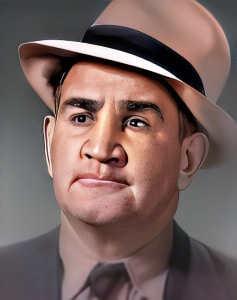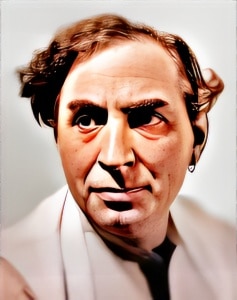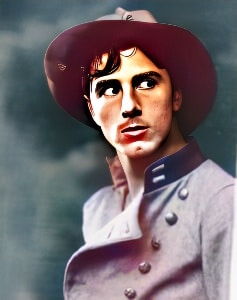 John Bowers, born on February 3, 1885, in Garrett, Indiana, was a prominent actor of the silent film era, known for his rugged charm and versatile talent.
John Bowers, born on February 3, 1885, in Garrett, Indiana, was a prominent actor of the silent film era, known for his rugged charm and versatile talent.
Although his career was relatively brief, his contributions to early cinema left an indelible mark on the industry and continue to be celebrated by film enthusiasts today.
Bowers began his acting career on the Broadway stage, where he honed his skills and gained valuable experience before transitioning to silent films. His rugged good looks and strong screen presence quickly endeared him to audiences, and he soon found himself in demand in Hollywood.
One of John Bowers’ most memorable roles was in the 1921 silent film “ The Ace of Hearts,” directed by Wallace Worsley. In the film, he played the lead character, Richard Farallone, a member of a secret society known as “The Black Hundred.” Bowers’ portrayal of a conflicted man torn between his loyalty to the society and his love for Lilith, played by Leatrice Joy, added depth and complexity to the narrative.
Bowers’ ability to convey emotions and inner turmoil on screen made him a sought-after leading man. His performances were characterized by a quiet intensity and a powerful presence. He had the rare talent of connecting with audiences through his expressions and body language, a trait that set him apart as an actor.
Throughout his career, Bowers displayed versatility, taking on a wide range of roles. He was equally adept at playing heroes and villains, showcasing his acting range. His performances were marked by authenticity and a commitment to his characters, which resonated with audiences.
Bowers’ collaborations with some of the leading actresses of the time, including Mary Pickford and Clara Bow, added to his reputation as a versatile and charismatic leading man. He was highly regarded for his on-screen chemistry with his co-stars, which contributed to the success of his films.
Despite his achievements in silent cinema, the transition to sound films proved challenging for Bowers, as it did for many silent film stars. While he made the shift to sound films, he did not achieve the same level of success that he had enjoyed during the silent era.
Tragically, John Bowers’ life came to a premature and heartbreaking end. On November 17, 1936, he and his wife, Margery Daw, died in a double suicide. Their deaths shocked the entertainment industry and saddened those who admired Bowers’ work.
John Bowers’ contributions to early cinema continue to be celebrated by silent film enthusiasts and historians. His performances, marked by their authenticity and emotional depth, showcase the artistry and power of silent cinema. While his career was relatively short, his impact on the silent film era remains a testament to his talent and the enduring allure of early Hollywood.
Loading live eBay listings...




